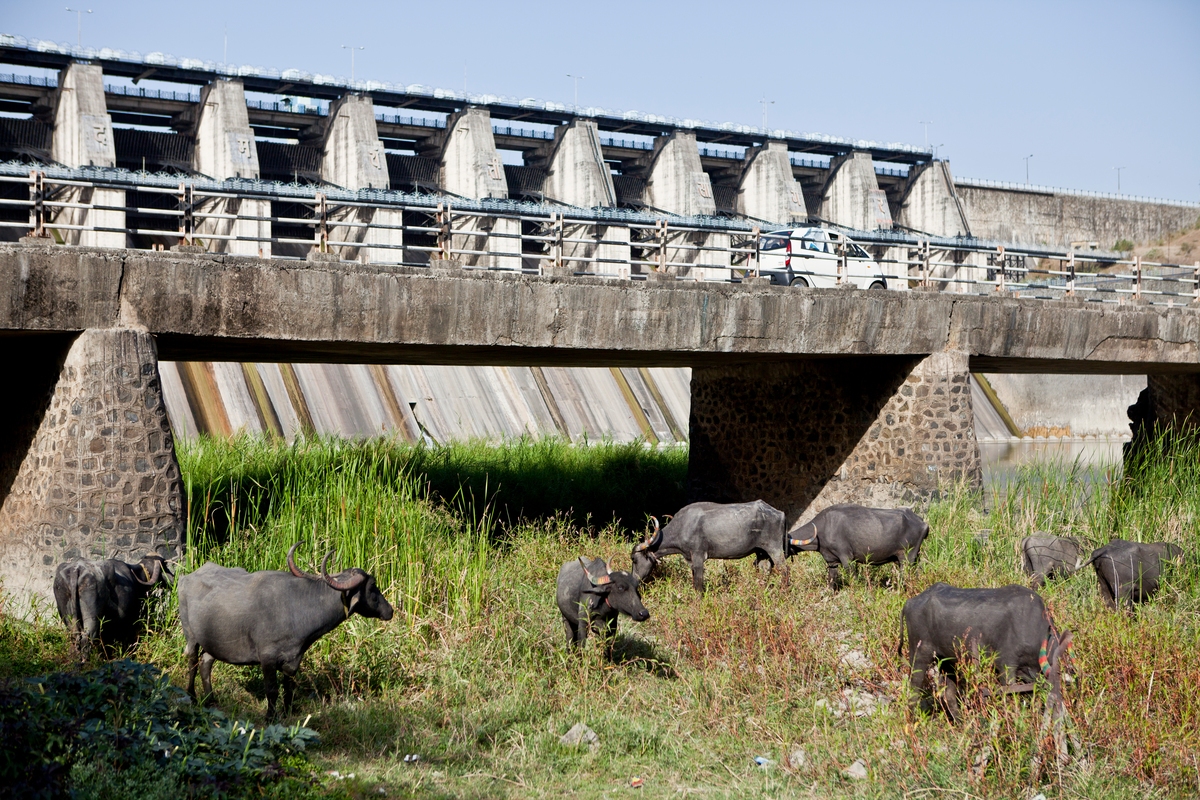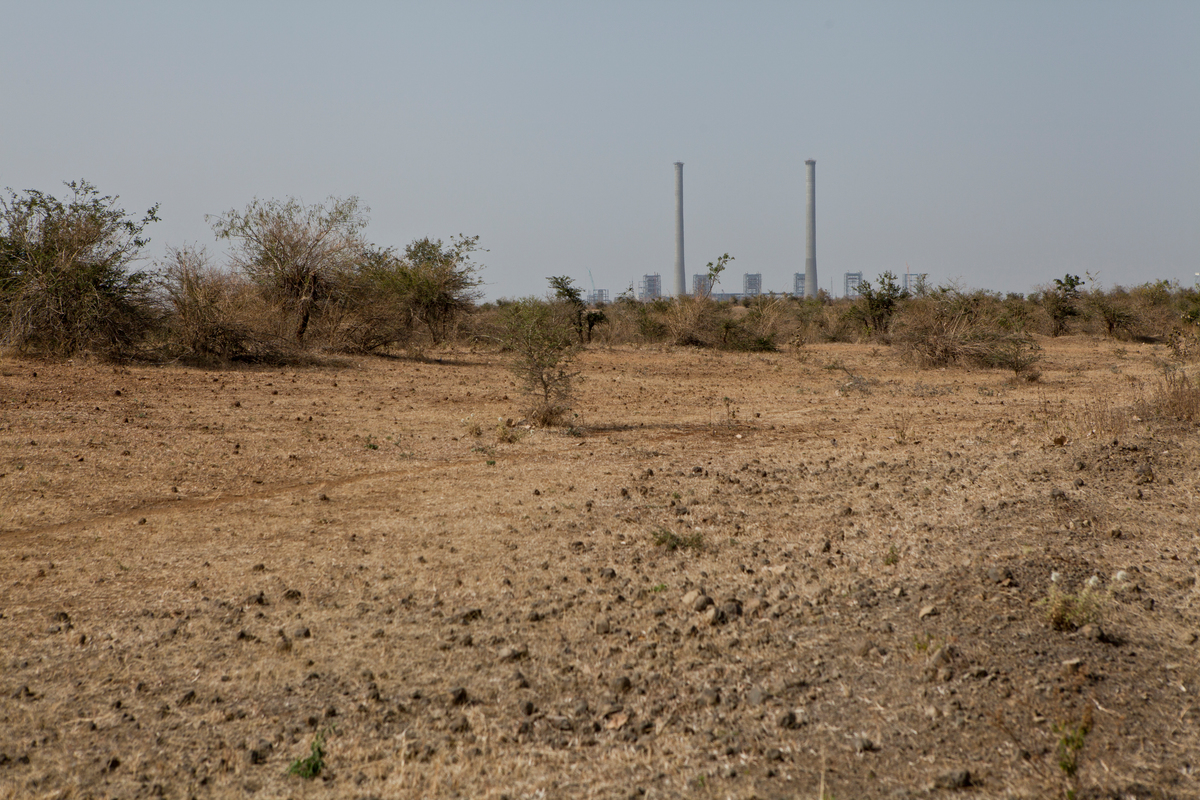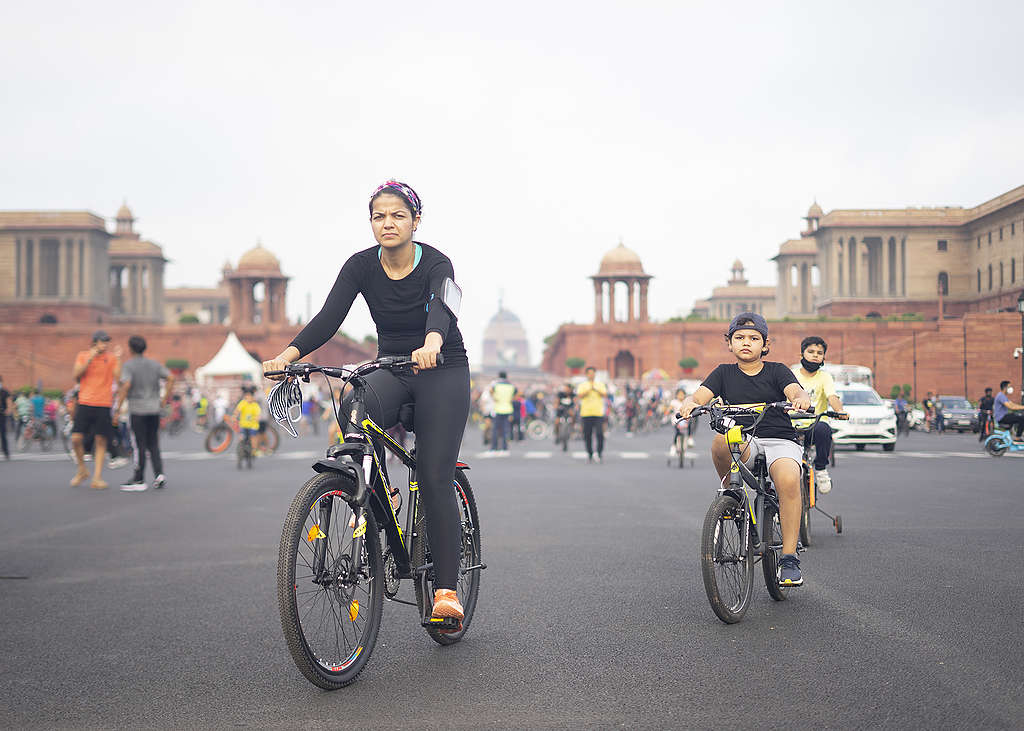The severe drought in Maharashtra has affected more than 12 districts and 11,800 villages this year alone. On May 30, a Greenpeace report exposed cases of wrong prioritization of water resources to thermal power plants over drinking water requirements. The report analyzes the water consumption by coal fired thermal power plants specifically during the period of the drought. Greenpeace demands an immediate review of water diversions and allocations of the state so that a similar drought should not happen again.

Buffalos near the Upper Wardha dam, Amravati district.
The Upper Wardha dam provides irrigation to a projected area of 80,250 hectares of farmland in Amravati and Wardha districts. Between 2008 and 2009, the state government diverted 124 million cubic metres of water from the dam to thermal power plants, acknowledging this would deprive nearly 33,000 hectares of irrigation, or 41% of the total command area.
Significantly, four state owned power plants, Bhusawal in Jalgaon, Parli in Beed, Paras in Akola and Nasik with an installed capacity of 3,680 MW are located in the drought affected parts of Maharashtra. The Parli power plant has stopped operations since February 17, 2013. A January 21, 2013 government resolution decided that small, medium, and big irrigation projects in water scarce regions will be reserved for drinking water purposes only. However, in December 2012 an additional water supply of 5,000 million liters was provided to Parli power plant by the water resource department to run till February 2013. With this move the government has violated its own resolution.
Jai Krishna, Campaigner, Greenpeace India says, “Even during a drought, the state seems to deprioritise the drinking water needs of farmers and villagers in the drought affected regions. Additional water seems to have been given to thermal power plants even during December last year despite being fully aware of the upcoming crisis in summer. Instead of assessing whether the power plants have enough water, the state should concentrate on whether people have sufficient drinking water during this drought.”
The Bhusawal power plant in Jalgaon and Paras power plant in Akola are still operational, consuming large quantities of water. This despite the fact that the talukas around the power plant like Buldhana and Jalgaon are suffering from a serious drought this year. It is estimated that the total water consumed by these power plants until March 2013 is about 17,000 Million liters and they are expected to consume another 15,000 million liters by June 2013. This is the equivalent to the water required for more than 6,00,000 people a year at a measure of 135 litres per person per day!

Far in the background, a coal-fired thermal power plant built by Indiabulls Power Ltd. in Amravati Industrial Area, Nandgaonpeth, Amravati district, Maharashtra.
Indiabulls has been allocated 87.6 million cubic metres of water per year, which is the irrigation supply of 23,219 hectares of farmland. A group of farmers in Amravati fought the decision for 16 months.
Overall in Maharashtra, more than 80,000 MW of power plants have been proposed. Most of them are slated to be in interior districts creating a huge demand for water from the rivers and reservoirs of these districts. About 9,500 MW of power plants are proposed in the drought affected districts alone, adding stress to the water sharing ratio between drinking water, agriculture and industry. It is estimated that the total volume of bulk water allocations for thermal power plants made by the High Powered Committee on water allocations is about 760 Million cubic metres. When these allocations took place the committee was headed by then Water Resources Minister, Ajit Pawar, now infamous for his urinating in dam’s remark.
Angered by Ajit Pawar’s remarks and hoping for a light at the end of the tunnel, Sanjay Kolhe, a farmer from Amravati started an online petition in April demanding that the CM of Maharashtra, Prithviraj Chavan ensure the return of the water that was meant for farmers.
Greenpeace demands that a cumulative assessment of the water availability and use in the state be conducted immediately to ensure that water allocations to thermal power plants are not made in violation of the water policy. Further it must be ensured that drinking water and agriculture requirements are the first priority. Besides this, all previous allocations should be suspended and an immediate moratorium must be imposed on any new allocations till these assessments are completed.

Donate today or consider remembering Greenpeace in your Will.
